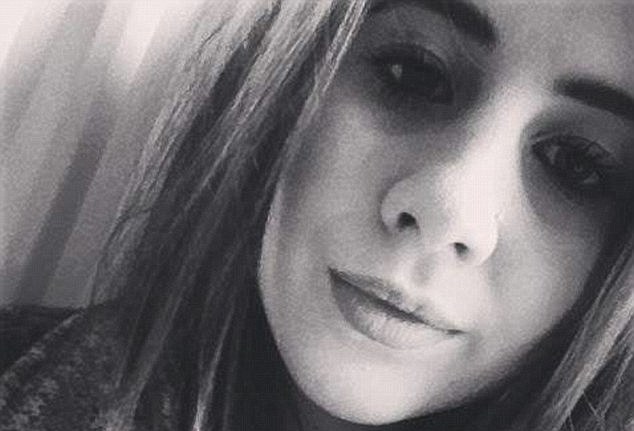Two years after Ashli Blake jumped off a monument and killed herself, a British trial is revealing new details about the young teen’s tragic death.
The Daily Mail reports Blake began dating 17-year-old Marcus Webb when she was just 13 years old. After becoming pregnant by him, Blake decided that she wanted to keep her baby, but her mother pressured her into having an abortion. Her boyfriend later made fun of her, even sending her a mock Mother’s Day card after the abortion, according to the investigation.
Haunted by the experience, two years later, the 15-year-old girl committed suicide in September 2014.
These details were revealed during a trial accusing Webb of sexually abusing his girlfriend. This week, Webb was sentenced to four years in jail for sexually abusing Blake, according to the report.
Prosecutor Simon Jones told the court more about what happened between Blake, her mother, Canasta, and Webb, according to the report:
‘The mother was not happy with the relationship because of the age gap. She allowed him to come to the house but he was not allowed in her bedroom.
‘She told him “you should not be sleeping with my daughter because of her age”‘.
Keep up with the latest pro-life news and information on Twitter. Follow @LifeNewsHQ
‘The defendant told her he wasn’t sleeping with her but a few days later her mother found out she was pregnant and kicked him out.’
While her mother advised her to have an abortion, Ashli wanted to keep the child, he said.
‘Ashli’s mother told the police her daughter wanted to keep the baby but Ashli accepted advice and had a termination.’
After undergoing the abortion Ashli received taunts from Webb including a Mothers Day card which was reported to police, he claimed.
In September Ashli jumped to her death from a tower in the New Forest after sending Webb a text message in which she threatened to take her own life.
Part of the message read: ‘If we can’t be together I don’t want to be here.’
David Povell, defending, described unemployed Webb as ‘very immature’, telling the court: ‘Marcus was not a man capable to deal with people his own age.
‘He remains a young man who comes across as a young teenager.
‘His intention was not about degradation, it was about sexual activity.’
LifeNews had reported a number of tragic suicide deaths among women who had abortions. In 2015, a British Indiana actress named Jiah Khan hung herself and left a suicide note lamenting her abortion and abuses at the hands of her partner.
Studies also have found that women who have aborted their unborn babies are at a higher risk of committing suicide. One study published in August 2003 edition of the British Medical Journal found that women who had abortions were seven times more likely to commit suicide than women who gave birth.
Lead author Professor David Fergusson, who has described himself in interviews as a pro-choice atheist, also led the research team in a 2008 study that concluded that women who continued an unwanted or mistimed pregnancy did not experience a significant increase in mental health problems. Further, having an abortion did not reduce their mental health risks.
“In general, there is no evidence in the literature on abortion and mental health that suggests that abortion reduces the mental health risks of unwanted or mistimed pregnancy,” the authors wrote. “Although some studies have concluded that abortion has neutral effects on mental health, no study has reported that exposure to abortion reduces mental health risks.”
A 2011 study published in the British Journal of Psychiatry found that 10 percent of mental health problems among women, including 35 percent of suicidal behaviors, may be attributable to abortion. These findings were based on the combined results of all studies published between 1995 and 2009 that met strict inclusion criteria. The resulting analysis included 877,181 women from six countries.
Women who aborted were 81 percent more likely to experience mental health problems compared to all other control groups, and 55 percent more likely to have problems compared to women who delivered an unplanned or unwanted pregnancy.
The increased risk of suicide following abortion has been recognized in Australia as well. The 2013 Queensland Maternal and Perinatal Quality Council report noted:
Suicide is the leading cause of death in women within 42 days after their pregnancy and between 43 days and 365 days after their pregnancy. There appears to be a significant worldwide risk of maternal suicide following termination of pregnancy and, in fact, a higher risk than that following term delivery.
The potential for depression and other mental health issues at this time needs to be better appreciated. Active follow-up of these women needs to happen. Practitioners referring women for termination of pregnancy or undertaking termination of pregnancy should ensure adequate follow-up for such women, especially if the procedure is undertaken for mental health concerns.








